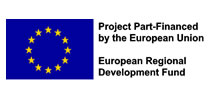Research >
Expertise in our research is reflected in independent research rankings (five ranking, RAE 2001) and in sponsorship from UK and European institutions (ESF, ERDF, ESRC, CBI, DTI).
Examples of SERU's research projects are listed below. For more information about these projects and a more detailed description of SERU, please visit the dedicated SERU homepage. For a more detailed list of publications and presentations by SERU, refer to the list at the foot of this page.
ESRC, Apr 2005 - Dec 2006;
‘The Impact of Gender & Ethnicity in Innovation on Regional Technology, Economy & Society’
This high profile ESRC project will investigate gender disparities in high level economic and scientific activities in terms of research and development, innovation, invention and exploitation of IPR amongst female employees working in the Science, Engineering and Technology (SET) communities in both the public and private sectors. It will research the subsequent impact on society, technological capacity and economic development in the North East of England and investigate the mechanisms by which female employees in SET communities can go on to generate or actively participate in invention, innovation and the creation of IPR.
HE ESF National Project, Objective 3, Jan 2005 - Dec 2006;
'SET Innovation Equality'
This prestigious two-year HE ESF National project will empirically investigate innovation activities of men and women working in the Science, Engineering and Technology (SET) community in contrasting regions of England and will examine the impact on the economy, society and on personal progression.
ESF, Objective 3, Jan 2003 - Dec 2004;
'E-Flexibility'
This research project aims to investigate and identify barriers (direct and/or indirect) that constrain or do not otherwise enable female and male participation and engagement in the e-flexible labour market in various regions in the UK. The project investigates, in particular, the application of information & communication technologies and the degree and extent to which ‘Teleworking’ has the capacity to increase female and male rates of participation/economic activity. The project seeks to promote an increased understanding amongst employers as to the ways in which they might apply such technologies and implement more e-flexible working arrangements. The research seeks to determine whether women and men are deterred from entering full-time employment as a consequence of inflexible forms of work organisation/working patterns and investigates the scope for addressing such barriers through the application of information & communication technologies.
ESF, Objective 3, Jan 2003 - Dec 2004;
'SET Equality'
This is a major research project which investigates and compares female and male participation in high level economic and employment activities in the areas of innovation, invention, R&D and the commercialisation of intellectual property rights (IPR). The research focuses on women and men working in the Science, Engineering and Technology (SET) community who are self-employed or are in full-time or part-time employment in either the public (e.g., Universities) or private sectors (e.g. SMEs).
ESF, Objective 3, Sep 2002 - Dec 2004;
'Equalising Opportunities'
SERU is undertook a major research project, entitled, ‘Equalising Opportunities’ under the European Social Fund (ESF) Objective 3, funded and approved by the Government Office for the North East and the Secretary of State for Work and Pension. The project supported empirical research into gender discrimination in employment, covering several key issues including for example, recruitment, pay, segregation, progression, flexible working, childcare, access to learning opportunities, return to work, and barriers to entry in engineering, IT, science & technology and construction sectors in the North East. The project sought to identify and formulate solutions for those barriers that inhibit the productive contribution of women to the labour market and the target sectors in particular.
ERDF, Objective 2, June 2000 - Dec 2003;
'Facilitating Business Start Ups'
This ambitious project aimed to engender and progress an entrepreneurial culture in the North East. It was achieved through a collaborative programme which linked ideas with entrepreneurs and then made available a tailored range of support functions. This bespoke provision was driven by specific and individual needs to meet the prerequisites of innovative business ideas across the region. The target beneficiaries were individuals in the process of a business start up or SMEs (less than three years old).
Selected Publications;
Wynarczyk, P. and Watson, R., (2005), “Firm Growth and Supply Chain Partnerships: An Empirical Analysis of UK SME Subcontractors”, in Small Business Economics Journal, Kluwer Academic Publishers, February.
-
Wynarczyk, P. and Brown, J., (2005), Gender Gap in Scientific Discoveries and Innovation in the North East, Working Together, Employee Relations Forum, p.4-6, April.
-
Wynarczyk, P. and Brown, J, (2005), Sex & Science - Why the Barriers?, Innovator, p.6, Spring.
-
Wynarczyk, P. and Raine, A., (2005), “The Performance of Incubators and their Potential Development in the Northern Region, Local Economy, vol.20, No.2, 213-228, May.
-
Wynarczyk, P. (2005), “Connectivity Technology and E-flexible working Opportunities of SMEs”, submitted New Technology, Work and Employment (subject to minor changes).
-
Wynarczyk, P., (2005), “Digital Networks and Economic Performance: Evidence from the Small and Medium-sized Enterprises in the North East of England”, Regional Studies, accepted subject to minor changes.
-
Wynarczyk, P. and Brown J., (2005), ‘Women In Industrial Research and Development (R&D) in the North East of England’, Report prepared for the Government Office for the North East- ESF Objective 3, also to be submitted to the Journal of Regional Studies.
-
Wynarczyk P. and Brown, J., (2005), “Gender Gap in Invention and Innovation”, report for the Government Office for the North East, ESF Objective 3, also to be submitted to the Journal of Entrepreneurship.
-
Wynarczyk, P. , Watson, R., Storey, D. J., Short, H. and Keasey, K., (1993), Managerial Labour Markets in Small and Medium-sized Enterprises Routledge, London and New York , September. (Please see below for review comments).
-
Monck, C. S. P., Porter, R. B., Quintas, P. R., Storey, D. J. and Wynarczyk, P., (1988), Science Parks and the Growth of High Technology Firms, Croom Helm/Peat Warwick, London.
-
Wynarczyk, P., ( 2000). “The Role of Digital Networks in Supply Chain Development.” New Technology Work and Employment 15:2, 123-138.
-
Wynarczyk, P., (2000), “High Growth SMEs and Regional Prosperity” Journal of Frontiers of Entrepreneurship Research 1999, Babson College , Boston , USA .
-
Hardill, I. and Wynarczyk, P., (1996), “Technology, Entrepreneurship and Company Performance: British Textile and Clothing SMEs”, New Technology, Work and Employment, 11:2, 107-117, September.
-
Thwaites, A.T. and Wynarczyk, P., (1996), “The Economic Performance of Innovative Small Firms in the South East and Elsewhere in the UK ”, Regional Studies, 32, 135-149, April.
-
Wynarczyk, P., and Thwaites, A.T., (2000), “The Role of Medium-sized Innovative Manufacturing Firms in Regional Economic Performance: Some Evidence from the Northeast Region of England." in New Technology Based Firms at the Turn of the Century Wim During, Ray Oakey and Michelle Kipling (eds), Elsever Science Ltd, May.
Selected Conference Presentations;
Wynarczyk, P., and Brown, J. (2005), ‘Gender Gap in the Scientific Labour Market in Contrasting Regions of the UK’, presented at the International Conference, Regional Growth Agenda, University of Aalborg, Aalborg, Denmark, 28 – 31 May, Regional Studies Association.
-
Wynarczyk, P., and Brown, J., (2005), ‘Academia and Industrial Relations’, DTI/DfES Diversity and equality in science education and training Workshop, Said Business School, Oxford University, February.
-
Wynarczyk, P., and Brown, J., (2005), ‘The Impact of E-flexible Working Practices on Participation of Women in the Labour Market in the North East of England’, paper to be presented at the International Conference, Regional Growth Agenda, University of Aalborg, Aalborg, Denmark, 28 – 31 May, Regional Studies Association.
-
Wynarczyk, P., and Brown, J., (2005), ‘Gender Gap in the Scientific Managerial Labour Market: The Case of Innovative Small and Medium-sized Enterprises in the North East of England’, paper to be presented at the 4th International Interdisciplinary Conference, Gender, Work and Organisation, Keele University, June.
-
Wynarczyk, P ., Robson, E, and Welamedage, L. (2003), ‘ Providing the Entrepreneurs of Tomorrow: The Role of Further Education Colleges’, paper to be presented at Reinventing Regions in the Global Economy Conference, Regional Studies Association, Pisa, Italy, April 2003.
-
Wynarczyk Pooran, (2002), “Turning Schumpeterian Theoretical Insights into Public Policy Action: Fostering Entrepreneurship and Innovation through European Business and Innovation Centres (EuBICs) in Less Favoured Regions of Europe”, presented and International Schumpeterian Society Congress.
Wynarczyk , P. and Welamedage, L., (2001), “A Longitudinal Study of the Relationship Between ICT and SME Growth in the North East of England”, Europe paper presented at Regional Studies Association Conference, ‘Regional Transitions: European Regions and the Challenges of Development, Integration and Enlargement’, Gdansk , Poland , 15 – 18 September.
-
Wynarczyk, P . and Wilson, P., (2001) “The Role of Business & Innovation Centres (BICs) in Fostering Innovation Through Business Incubators and Clusters in Less Favoured Regions of Europe”, paper presented at Regional Studies Association Conference, ‘Regional Transitions: European Regions and the Challenges of Development, Integration and Enlargement’, Gdansk , Poland , 15– 18 September.
Wynarczyk, P. (1999), "The Economic Performance of Innovative SMEs in the North East of England", presented at Regional Studies Association International Conference, 'Regional Potentials, in an Integrating Europe', University of the Basque Country, Spain , 18-21 September
-
Wynarczyk, P., (1999), "High Growth SMEs and Regional Prosperity: Evidence from the North East of England", paper presented at Babson College/Kauffman Foundation, Entrepreneurship Research Conference, USA, 12-15 May 1999
|





|











